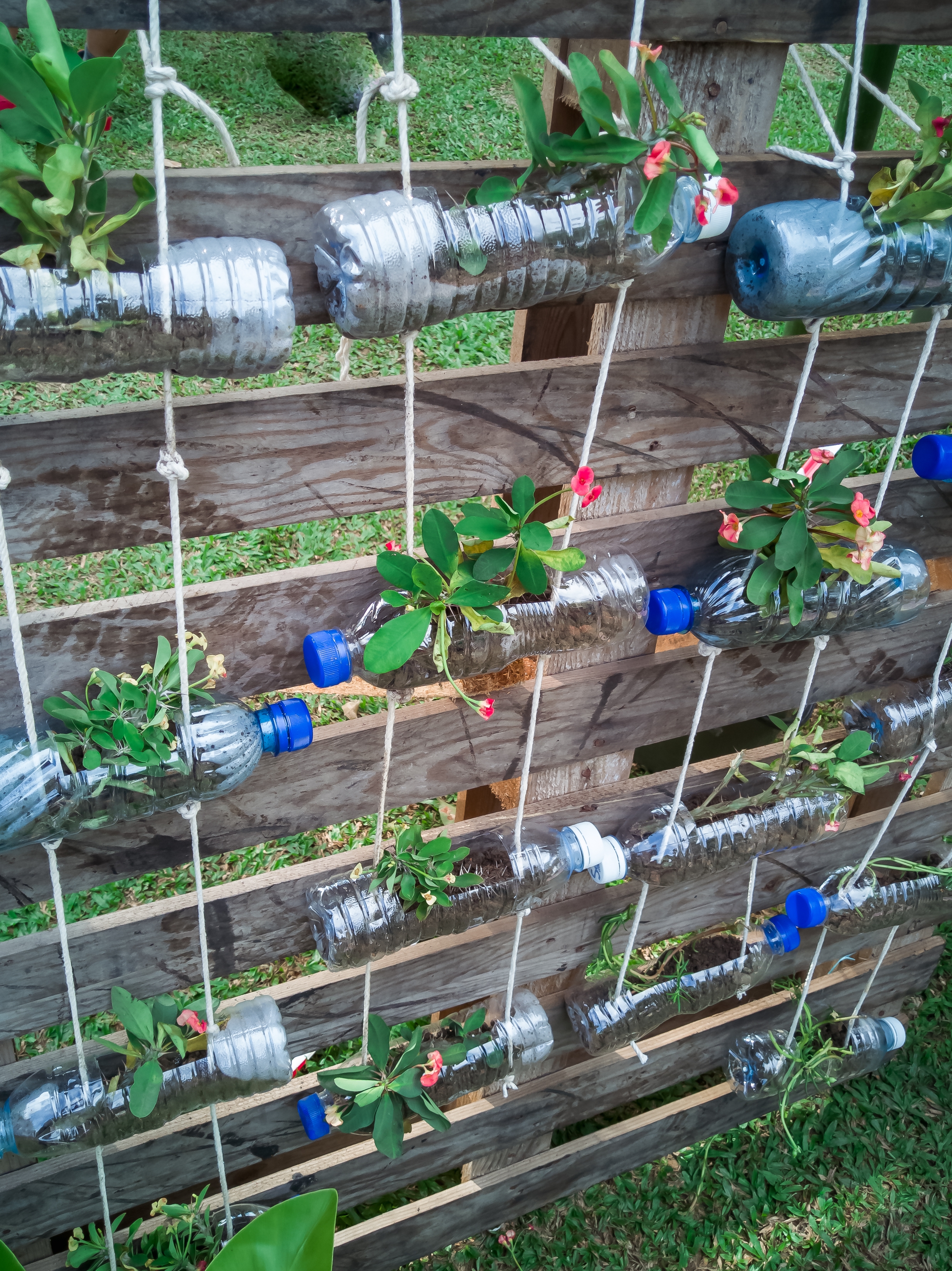Why Use Local Resources for Your Garden?
As someone who loves growing my own food, and not breaking the bank at the same time, ive found that the secret to balancing these two goals lies in utilizing the local resources available to me. Not only is sourcing local materials great for the environment, but it also allows you to get the raw inputs needed for your garden, and often very cheaply, all while helping you to make local connections. In this growing guide, I’ll be sharing the benefits of using local resources for your garden, along with some handy tips on how to find and make the most of these resources.
Benefits of Utilizing Local Resources
First and foremost, using local resources helps to ensure that your plants are acclimated to the specific climate and soil conditions of your area. This means that they are more likely to thrive and produce an abundant harvest but to most readers the main reason you may want to utilize local resources is the cost-saving aspect. To that end local resources, such as seeds and compost, are often available for free or at a fraction of the cost compared to purchasing them from big-box stores or online. This not only saves you money but also allows you to invest in other aspects of your garden, such as high-quality tools or specialized plants. Moreover, by utilizing local resources, you are fostering a sense of community and supporting local businesses and organizations. It’s a win-win for both you and your community!
Types of Local Resources for Gardening
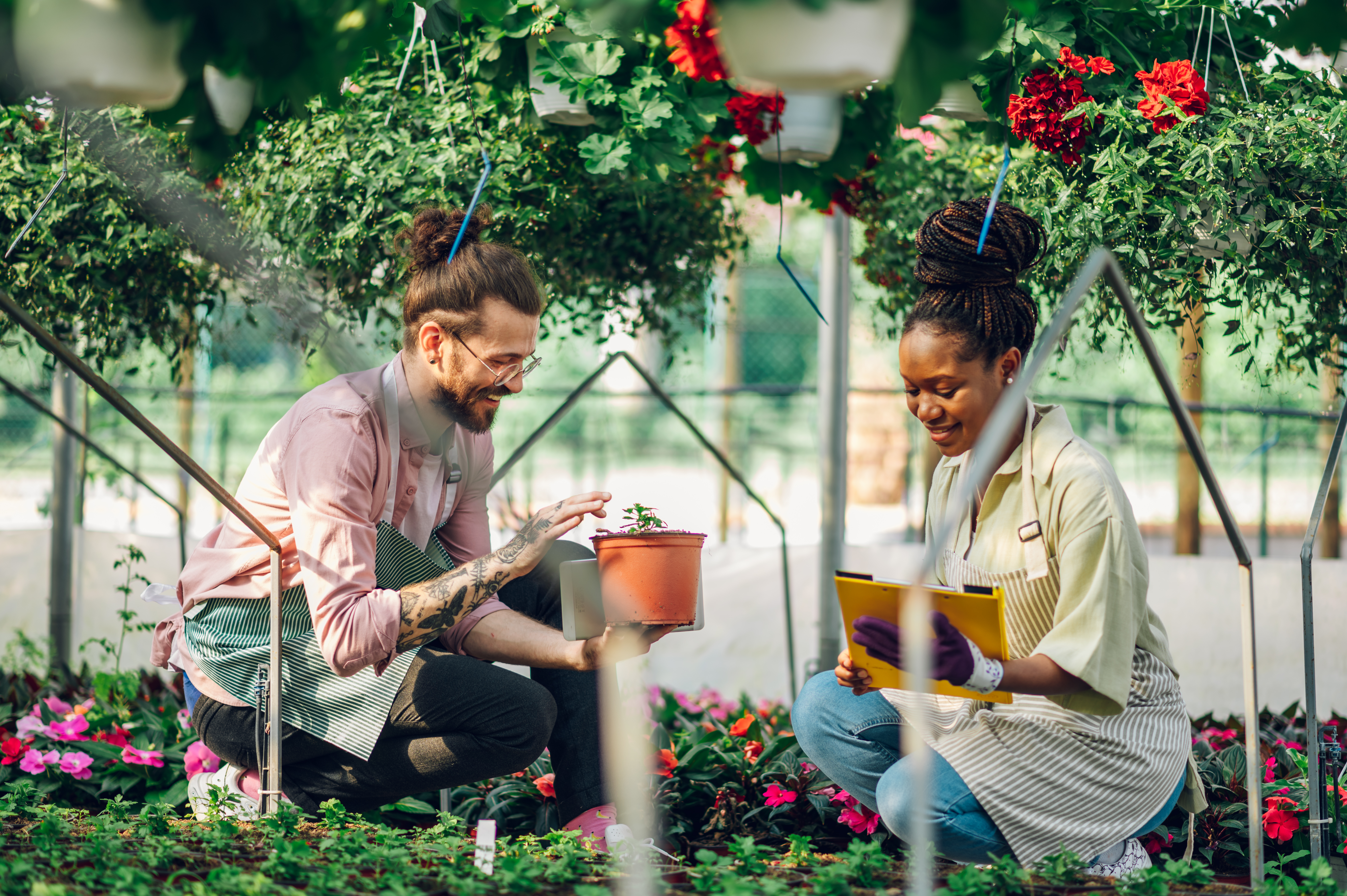
Nurseries
Local nurseries are an excellent source of plants, seeds, and gardening advice. Unlike large chain stores, nurseries often carry a wide selection of native plants that are well-suited to your region. While the selection offered at local nurseries is often more narrow, they more than make up for this by providing valuable insights into which plants thrive in your local climate and they can offer great guidance on proper care and maintenance. Visiting a nursery not only supports local businesses but also allows you to connect with fellow garden enthusiasts and exchange knowledge.
Community Gardens
Community gardens are an incredible resource for aspiring gardeners, especially those who lack the space for their own garden. These shared spaces provide access to land, tools, and the expertise of more experienced gardeners. By joining a community garden, you can learn from others, grow your own produce, and contribute to a vibrant and supportive gardening community. It’s a wonderful opportunity to connect with other like-minded individuals.
Finding Local Resources
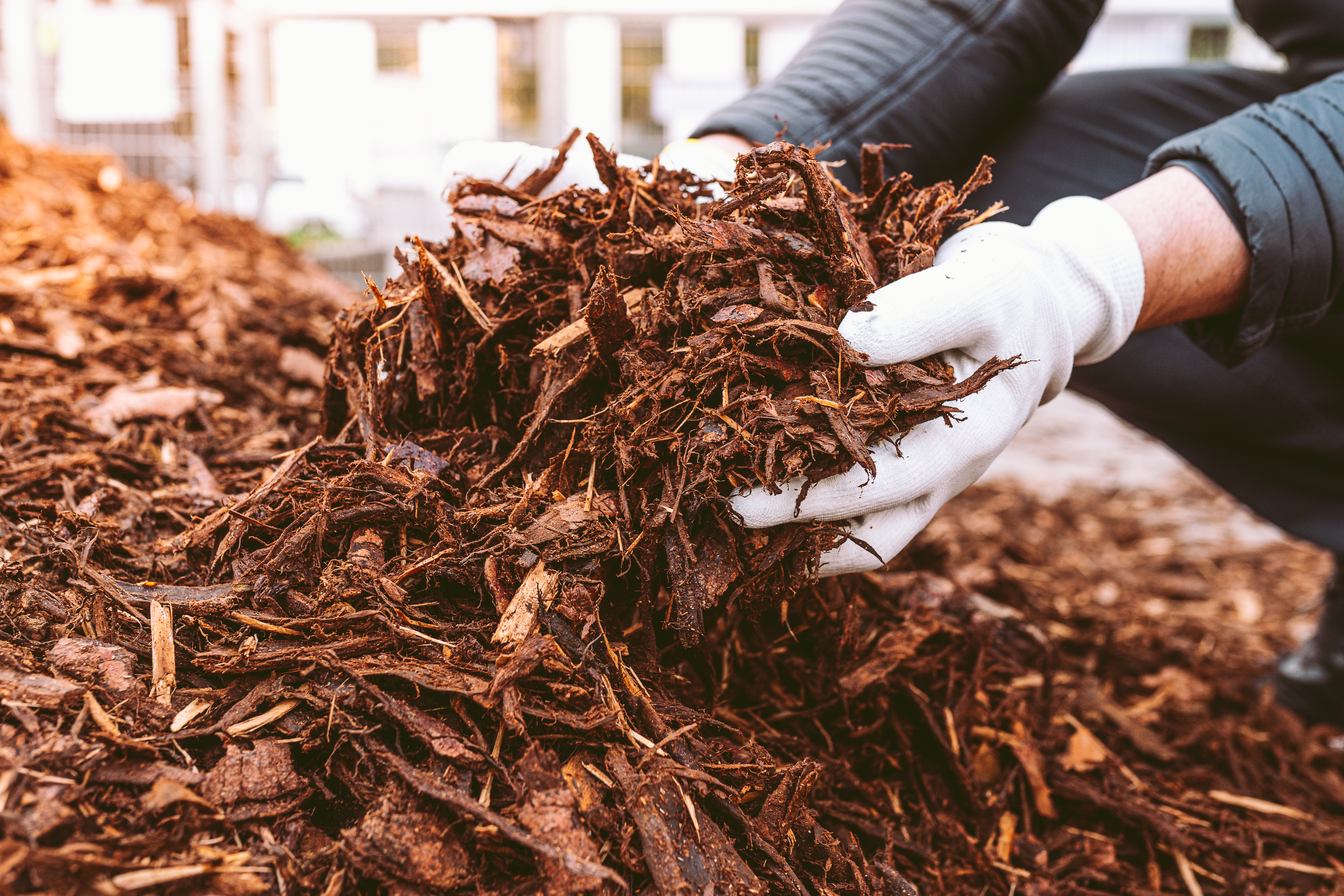
How to Get Free Wood Mulch
Wood mulch is a valuable resource and one way to obtain it for free is by contacting utility companies or landscapers in your area. They often have excess wood chips from tree removal or powerline maintenance that they would otherwise have to pay to have discarded and they are often more than happy to give it away for free. There is one consideration you should make before acquiring mulch in this way and that is the amount of space you have and how much mulch you need. For example, in my area, my utility company will drop off no less than 10 yards of mulch at a time. So again if you don’t have the space, or the need, for this much material this may not be the best option for you. However, if you do, utilizing this resource not only save money but also contribute to the recycling and repurposing of local organic materials.
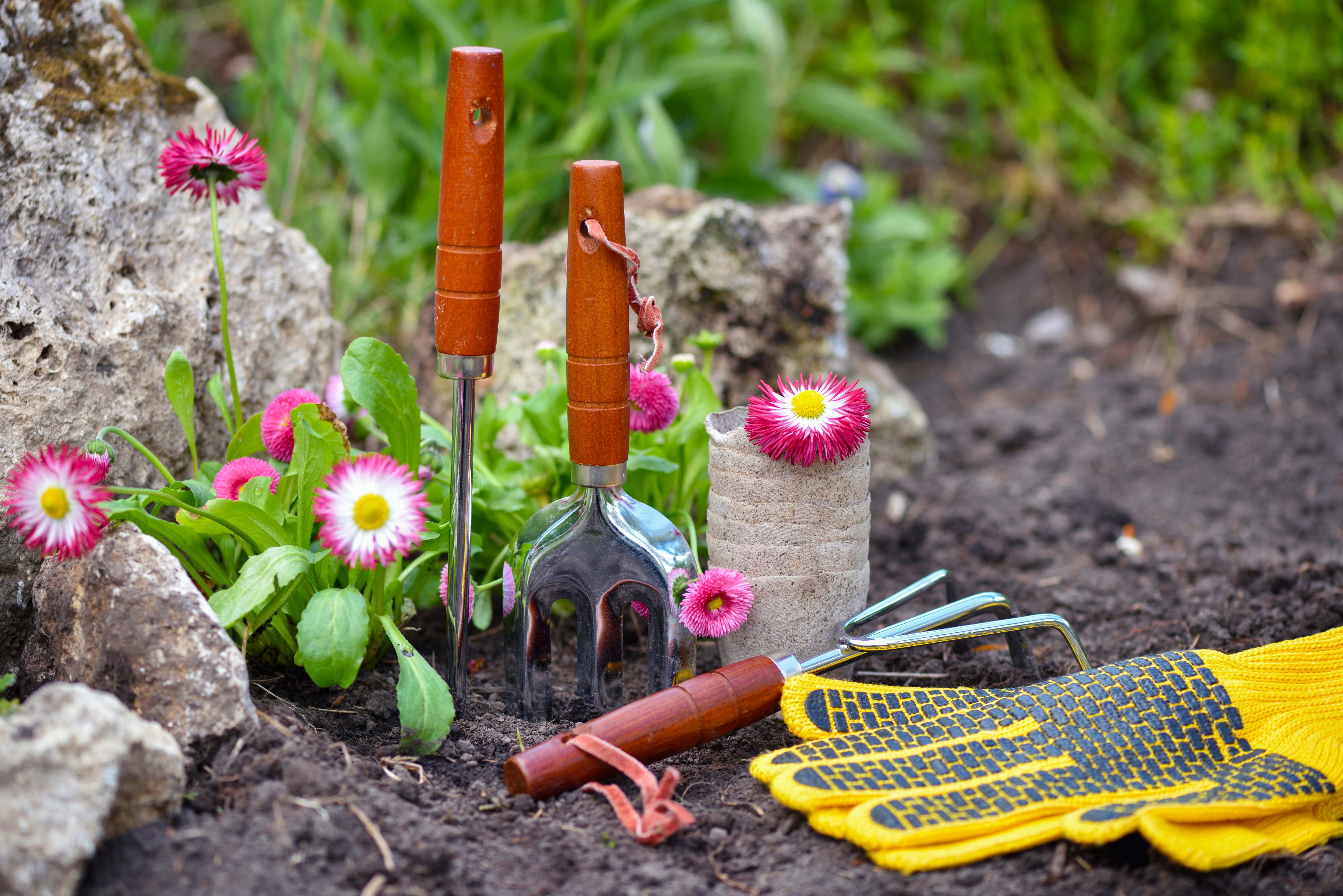
How to Use Libraries for Garden Tools
Libraries offer more than just books; they can also be a valuable resource for your garden. Many libraries offer gardening tools that you can check out similar to checking out a book. This allows you to try out different tools without having to invest in expensive equipment you may not really need. While the selection of tools at your local library may be limited, you can get access to them often for free. Libraries also provide access to a wealth of digital tools that can aid your gardening journey. From online gardening courses to digital resources on plant care and landscaping, libraries are a trove of gardening information waiting to be explored.
How to Get Seeds for Free
Local seed exchanges are a fantastic way to acquire seeds that are specifically adapted to your climate and growing conditions. These exchanges often take place at community events, gardening clubs, or even Libraries and acquiring seed in this way is almost always free. Participating in a seed exchange allows you to diversify your garden with unique and locally adapted varieties. It’s a wonderful opportunity to connect with fellow gardeners, share knowledge, and discover new plant species that you may not have encountered otherwise. If you decide to participate in a seed exchange, its always a good practice to give back as much seed as you have taken at the end of the year.
How to Get Free Food Scraps for Making Compost
When most people throw away food scraps, they know it’s a wasteful practice and it gives them an unpleasant feeling and coffee shops are no different. One way to you can help these businesses feel better about the waste they produce and obtain free organic material for your composter is by offering to pick up and compost these scraps for them. Many coffee shops are more than willing to give away spent coffee grounds that are a valuable source of nitrogen for your garden. To make it worth their time and effort it’s always a good idea to provide them with 5-gallon buckets ahead of time so it makes it easier for them to save the grounds for you. Not only does this provide you with valuable composting materials, but it also helps divert waste from landfills all while being free!
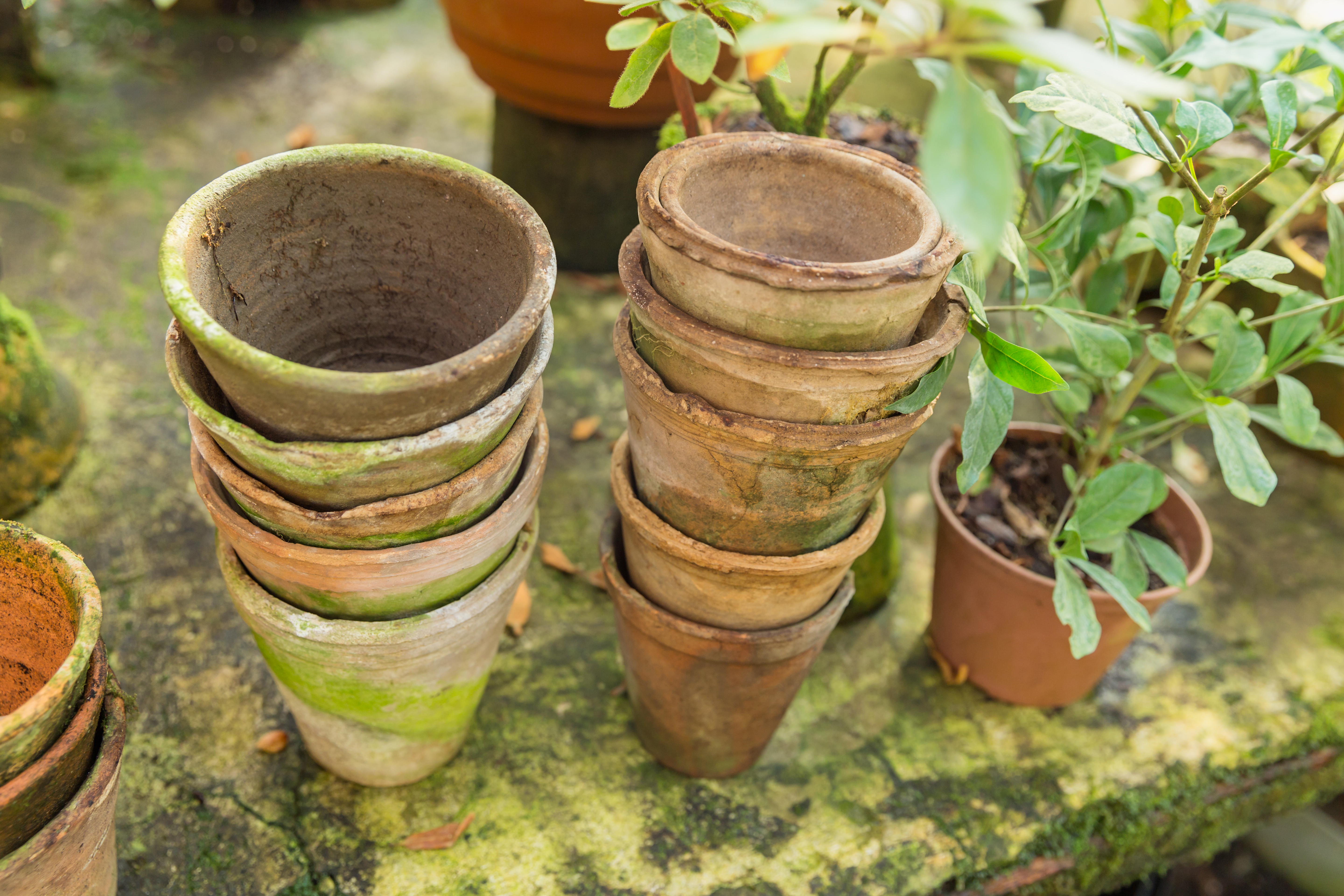
Reusing and Repurposing Materials for Garden Projects
Reusing and repurposing materials can add a creative touch to your garden projects. Instead of buying new, consider looking online like at places like Facebook marketplace where you can often find people giving away free used items like buckets, crates, or gardening tools. Transforming discarded items into things like planters not only adds a unique aesthetic to your garden but also gives new life back to useful things that otherwise may have found their way into a landfill. Get creative and let your imagination run wild!
Main Takeaways
Harnessing local resources for your garden is a smart and sustainable approach that offers numerous benefits. By utilizing local nurseries, seed exchanges, libraries, and community gardens, you support local organizations and gain access to plants and seeds that are perfectly suited to your region. Additionally, tapping into free resources such as wood mulch, library tools, and used coffee grounds helps you save money all while making connections with local likeminded people. After all gardening can be a team effort. Happy growing!
